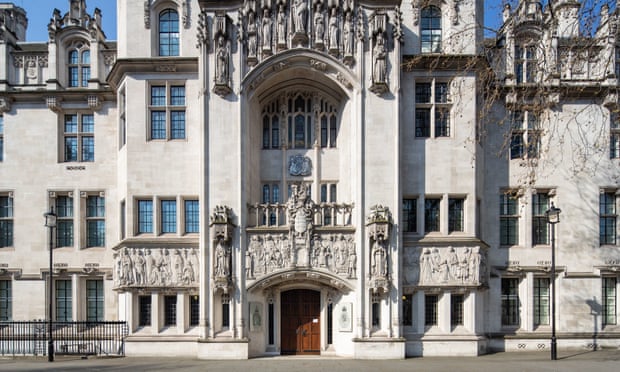With the continuing cascade of bad news, for our profession and for everybody else in whatever profession or line of business, it’s hard to find anything positive right now. However, the ceaseless reports of Biglaw firms downsizing, rightsizing, furloughing, or just call it what it is, laying off, calls to mind, and not in a good way, what happened a decade or so ago. The Great Recession was in full flower and law school graduates took it in the shorts in ways big and small.
At least the 2010 graduates were able to take their bar exams on schedule, the concept of social distancing (and other COVID-19 terms) not even a gleam in anyone’s eyes a decade ago. Now, bar associations must figure out what to do about the July bar. Postpone it? Let the graduates have “diploma privilege” while apprenticing?
The Supreme Court of California has ordered that there will be no July 2020 bar exam. Instead, the July bar will be on September 9-10 and will take place online with remote and/or electronic proctoring. You can Google “online exam proctoring.” Lots of vendors provide it.
Before that exam, the First Year Law Students’ Examination, aka the “Baby Bar,” will be in June, also to take place online with remote and/or electronic proctoring. The court’s order says that the “State Bar shall use the experience in administering this exam to ensure a smooth online administration of the September 2020 California Bar Examination.” (My editorial comment: “Fingers crossed.”)
“Normally” (is that an oxymoron these days?) there is a second Baby Bar exam in October, but the court has ordered that postponed to November 2020 “… to maximize grading resources for the September 2020 California Bar Examination.”
The goal, said the court, is to have the State Bar “undertake every effort possible to speed the grading and final results of the exam” so that the bar takers will know whether they have passed or failed no later than December 31, 2020.
What about the Multistate? The court ordered the State Bar to work with the National Conference of Bar Examiners “to facilitate the online administration … or some variation thereof.”
A lot to digest, and none of it will make the 2020 graduates happy. The State Bar must submit a plan for how this is all going to work by May 11. If circumstances change, said the court, then these timetables for both exams might change.
The court made it clear that these adjustments to the bar exams “recognize and will advance the manifest public interest in maintaining access to justice through competent and qualified legal services.” I take that to mean no diploma privilege, no practicing law without that license.
What about the ongoing studies about the California bar examination and the cut score? The court said those studies continue.
One concern I have that I think is shared by anyone who has ever sat for a bar exam, regardless of jurisdiction. Snafus seem to be an inevitable part of bar exams; the snafus can be big, they can be small, but they happen.
A few years back, I wrote about snafus on my bar exam, which I took many years before many, if not all, of you saw the light of day. Readers piled on with their own miseries about their bar exams.
2020 graduates, you have my sympathies for your experiences yet to come. You don’t get to have a graduation, your finals will be online, and then the bar itself will be online. Celebrations, if any, will be muted and small. Hopefully, you’ll get your results by year end, assuming you’ve passed, then what kind of jobs will there be? (Calling “Debbie Downer.”)
Perhaps you could move to Utah, which is allowing law school graduates to skip the bar exam. Other states (New Jersey, Georgia, and Arizona) are extending supervised practice rules. Skip moving to California.No pass to practice here.
Does anyone other than dinosaurs or those who listen to oldies music remember this song that was extremely popular in 1966? While it’s about summer love and whether it lasts until fall, I can analogize to the postponement of the California Bar Exam until September. (Work with me here.)
Will your knowledge last until September? 2020 bar takers are going to need to retain all that information for a longer period to pass the bar. (I remember the relief that I felt when I did a brain dump after the bar exam ended the last week of July.) Now, graduates will have to continue to memorize, write practice essays, and practice MBE questions and the like while waiting longer to take the exam. Couple that with the anxiety level that is inherent in any bar exam situation. Add to that the waiting time for results. Add to that a very uncertain job market.
All of us who have shared bar exam horror stories over the years will be considered whiners and crybabies after this year. As I mentioned in a previous column, logistics are necessarily going to play a huge part in getting the court system back up and running. Logistics will also play a big role in getting the bar exam off the ground and administered successfully.
Through no fault of their own, 2020 law school graduates are going to be a test case for whether bar exams can be administered successfully online. There’s no way to sugarcoat what is to come. It’s a daunting prospect. Yes, it’s discouraging, but practicing law can be discouraging, so consider this a “practice exam.” Yeah, right.
 Jill Switzer has been an active member of the State Bar of California for over 40 years. She remembers practicing law in a kinder, gentler time. She’s had a diverse legal career, including stints as a deputy district attorney, a solo practice, and several senior in-house gigs. She now mediates full-time, which gives her the opportunity to see dinosaurs, millennials, and those in-between interact — it’s not always civil. You can reach her by email at oldladylawyer@gmail.com.
Jill Switzer has been an active member of the State Bar of California for over 40 years. She remembers practicing law in a kinder, gentler time. She’s had a diverse legal career, including stints as a deputy district attorney, a solo practice, and several senior in-house gigs. She now mediates full-time, which gives her the opportunity to see dinosaurs, millennials, and those in-between interact — it’s not always civil. You can reach her by email at oldladylawyer@gmail.com.
















 Jill Switzer has been an active member of the State Bar of California for over 40 years. She remembers practicing law in a kinder, gentler time. She’s had a diverse legal career, including stints as a deputy district attorney, a solo practice, and several senior in-house gigs. She now mediates full-time, which gives her the opportunity to see dinosaurs, millennials, and those in-between interact — it’s not always civil. You can reach her by email at
Jill Switzer has been an active member of the State Bar of California for over 40 years. She remembers practicing law in a kinder, gentler time. She’s had a diverse legal career, including stints as a deputy district attorney, a solo practice, and several senior in-house gigs. She now mediates full-time, which gives her the opportunity to see dinosaurs, millennials, and those in-between interact — it’s not always civil. You can reach her by email at